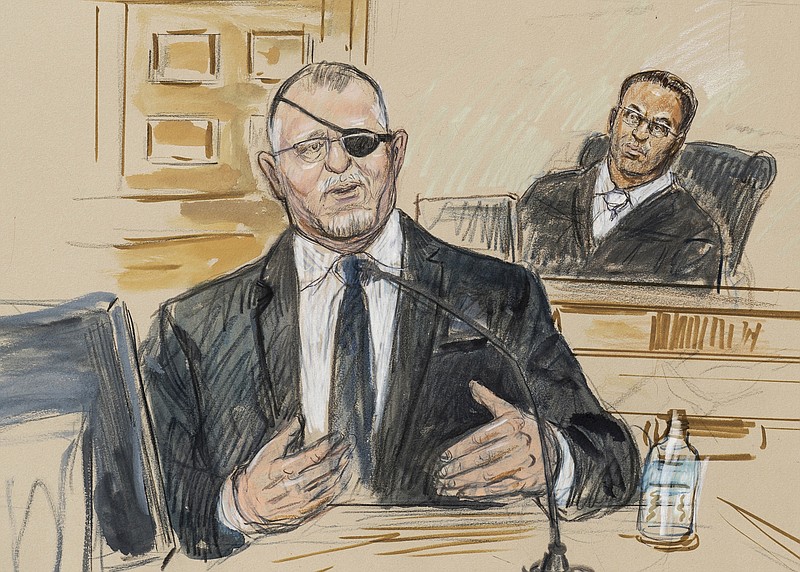By ALANNA DURKIN RICHER, LINDSAY WHITEHURST and MICHAEL KUNZELMAN
Associated Press
WASHINGTON (AP) -- The seditious conspiracy convictions of Oath Keepers founder Stewart Rhodes and another leader in the far-right extremist group show that jurors are willing to hold accountable not just the rioters who stormed the U.S. Capitol on Jan. 6, 2021, but those who schemed to subvert the 2020 election.
Tuesday's verdict, while not a total win for the Justice Department, gives momentum to investigators just as the newly named special counsel ramps up his probe into key aspects of the insurrection fueled by President Donald Trump's lies of a stolen election.
As Democrats call for charges to be brought against Trump and the House committee investigating the insurrection weighs making a criminal referral to the Justice Department, the Oath Keepers verdict may embolden investigators to build cases against other major players behind the push to keep Trump in power.
They are the first seditious conspiracy convictions at trial in decades and are significant because the legally complex charge can be difficult for juries to grasp and for prosecutors to prove, especially in an ultimately unsuccessful plot. The sprawling Capitol riot probe has already led to the arrest of more than 900 people across the U.S. and could result in hundreds of more charges, but Rhodes and his associates were the first to stand trial on the Civil War-era offense.
Jurors found Rhodes and Kelly Meggs, who led the Florida chapter of the antigovernment group, guilty of sedition for plotting to use force to block the presidential transfer from Trump to Joe Biden.
Testimony showed how the Oath Keepers were inspired and energized by Trump and his false claims of election fraud. After Trump tweeted Dec. 19, 2020, about a "big protest" at the upcoming joint session of Congress on Jan. 6 that he promised would "be wild," Meggs wrote in a message: "He wants us to make it WILD that's what he's saying. He called us all to the Capitol and wants us to make it wild!!!"
In a risky move, Rhodes took the witness stand and tried to cast his violent rhetoric as bombastic talk, separate from the storming of the Capitol itself. Ultimately, it appeared that Rhodes' testimony was outweighed by the vast volume of his own writings, text messages and a recorded conversation.
Charges stemming from the insurrection thus far have focused largely on those who stormed the Capitol, attacked police officers, smashed windows and sent lawmakers running for their lives. But Justice Department officials have already shown acute interest in speaking with members of the Trump administration about efforts to undo the election.
